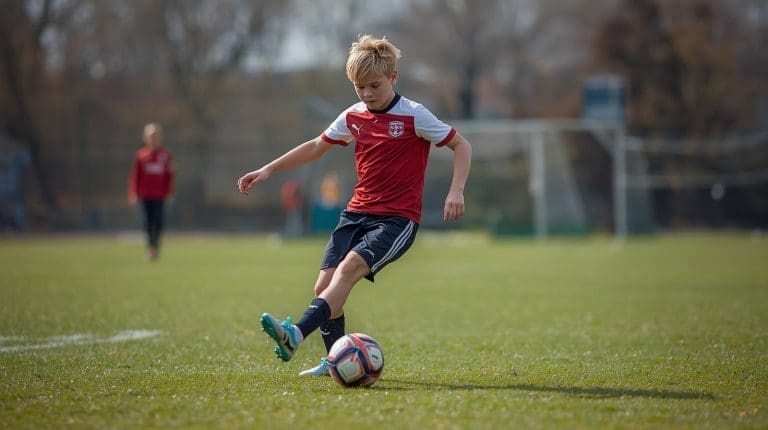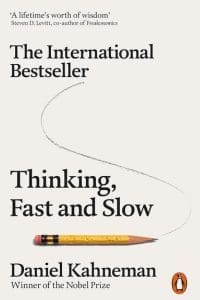
Case Study: Helping a Neurodivergent 14-Year-Old Footballer
Strengthen His Confidence, Emotions and Match Performances
Ethan, aged 14, came to sessions struggling with confidence, emotional overwhelm, and inconsistency in football. As a neurodivergent young player, he often felt things more intensely than his teammates frustration after mistakes, anxiety before big games, self-criticism, and difficulty letting go of small errors. His family wanted him to enjoy football again, feel more in control emotionally, and develop the resilience needed for higher-level competition.
Across 10+ sessions, we combined CBT techniques, counselling skills, and football-specific psychological training to help Ethan develop the mindset, tools, and emotional regulation skills required to thrive both on and off the pitch.
Understanding Ethan’s Starting Point
Ethan is a passionate Manchester City fan who loves Erling Haaland and Phil Foden and plays as a striker. This enthusiasm often turned into high expectations, which led to frustration when he didn’t score. Being neurodivergent meant:
- His emotional reactions were noticeably stronger
- He could become overwhelmed by criticism
- He struggled with impulsivity after mistakes
- He found transitions (e.g., being substituted) very difficult
- He could be self-critical and compare himself to others
Parents often see this combination high talent, high sensitivity, and high emotional reactivity in neurodivergent young athletes.
Part of the work early on involved normalising emotions, helping him understand that all footballers feel nervous, upset, or frustrated sometimes, and that emotions can be changed through actions and thoughts.
Creating His “Key Ingredients” for Success
We developed a personalised “Key Ingredients” list. Skills he could control regardless of opposition, scoreline or role. Together with his dad, Ethan rated each ingredient, from:
- Quick clear thinking
- Clever movement
- Shouting for the ball
- Concentration, being mentally ready at all times.
- Resilience, bouncing back positively from difficulties.
- Supporting teammates
This created a non-judgemental performance blueprint he could revisit before games to stay focused.
This list became the cornerstone of his training. He was encouraged to keep it:
- In his room
- In his kit bag
- On his water bottle
- On his phone
Reviewing these after games (using 1–100 scores) helped him see progress rather than perfection, a core CBT technique to counter all-or-nothing thinking.
Building Emotional Regulation Through CBT
Ethan’s biggest breakthroughs came from learning to manage frustration, anger, and disappointment more calmly. We introduced:
- The “30-Second Rule”
A tool to accept mistakes, reset emotionally, and return to the present moment.
This prevented rumination (“Why did I miss that?”) and redirected attention to what he could do next.
- The “Calm & Composed Footballer” Model
We created a mental image and behaviours inspired by players like Rodri:
- Straight face
- Quiet smile
- Shoulders back
- Head up
- Strong eye contact
- Confident body language
He practised this in sessions and games, helping reduce impulsive reactions.
- CBT Thought–Emotion–Action Training
We helped him notice the link between:
Thoughts → Emotions → Actions
For example:
“Don’t let them score” → Worry → Head down, rigid body language
vs.
“I can help the midfielders here” → Determination → Smart decisions, better positioning
This shifted his mindset from fear to challenge.
Managing Pressure and Big Games
Before difficult fixtures or important cup matches, Ethan tended to think:
“We might get hammered.”
This created a drop in energy and motivation.
We reframed these thoughts using challenge mindset CBT work:
- “We might get a goal.”
- “We could defend well and surprise them.”
- “How can I be a pest and make it really hard for their defenders?”
This improved resilience, effort, and tactical involvement.
Developing Social & Communication Skills
Ethan sometimes barked orders at teammates when frustrated. We explored:
- Asking questions instead of demanding actions
- Using calm, concise instructions
- Practising communication at home
- Reducing volume on the pitch
This boosted his leadership confidence and relationships with teammates important for neurodivergent players who may struggle with social nuance.
Handling Setbacks and Criticism
We used CBT to separate:
What he can control
Effort, movement, asking for the ball, staying positive, next actions.
What he cannot control
Referee decisions, teammate mistakes, crowd noise, comments from others.
This helped reduce emotional overload after mistakes and improved decision-making.
Outcome: A More Confident, Calmer & Consistent Footballer
By the end of our work together, Ethan had:
- Stronger emotional control
- The ability to move on from mistakes more quickly
- Much calmer reactions to pressure
- Better body language
- Improved communication
- More enjoyment and motivation
- Higher-quality decisions
- More consistent match performances
His parents reported that he was:
- Happier before matches
- Less anxious after mistakes
- More resilient
- More positive in everyday life
For further details on supporting Neurodivergent young athletes you may also enjoy the following:
>> Read: Book Review – ADHD in Sport: Strategies for Success – Dr Josephine Perry
>> Listen: Football Coaches: How To Help Neurodivergent Players Thrive with Adam Batstone
I sincerely hope that this case study has given you a flavour of how we support young neurodivergent children. This type of challenge can be overcome with expert support and guidance and is something we support many families with.
If you’d like to learn more about how we could help your players or your children why not get in touch.
Or if you found this article helpful, please share it with your friends, team-mates, parents or coaches.
You can also join our online community – THE SPORTS PSYCHOLOGY HUB – for regular Sports Psychology tips, podcasts, motivation and support.

Best Wishes
David Charlton
Global Sports Psychologist who is located near Newcastle Upon Tyne, UK and willing to travel Internationally. David also uses online video conferencing software (Zoom, Facetime, WhatsApp) on a regular basis and has clients who he has supported in the UK, UAE, Saudi Arabia, Australia and New Zealand.
Managing Director – Inspiring Sporting Excellence and Founder of The Sports Psychology Hub. With over 15 years experience supporting athletes, coaches, parents and teams to achieve their goals, quickly.






